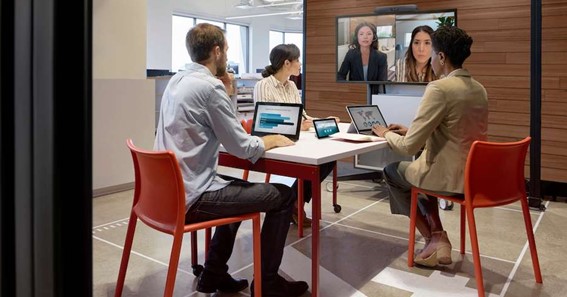For the majority of us, the working landscape changed completely two years ago when the world was struck by the pandemic. Workplaces were no more, and remote working was the new norm. Even after national lockdowns, workplaces were never the same. While things are almost back to normal, the future of the workplace is certainly not what it was five years ago.
There are several trends we expect to shape the new working environment, many of which owe to the ongoing and rapid advancements in technology nowadays. With all being said, here are our top predictions for the future of the workplace.
click here – How To Break An Escape Room Record?
Meaningful employee benefits
Whereas before, many people may have been more focussed on getting a pay rise, in the modern era, more and more people desire employee benefits that can benefit their lives. This includes things like company life insurance, gym membership, additional annual leave, critical illness cover, and more.
Hybrid working – more remote workers
Remote working became essential during the Covid-19 crisis, both before, during and after lockdowns. Some employees would be advised or demanded by the government to work from home, while others chose to because they were concerned for their health or had to look after loved ones.
Employees will likely have more choice in the future considering the proven benefits of remote and hybrid working. Hybrid working looks to be the way forward since it combines both working in the office and from home, which means everyone can reap the benefits of both. It’s time to accept that hybrid working is here for good.
Four-day workweeks
Although the four-day workweek is by no means a new concept, it has taken a few extensive tests and trials in the workplace to make it seem somewhat achievable to an extent. The biggest trial of the 4-day workweek was carried out by thousands of UK employees in June. Many are in huge favour of this concept, while others are not too fond of it.
Though it will probably not ever replace the five-day week for all businesses, it is likely more progressive businesses will adopt this idea, especially considering some companies already have shorter working days on a Friday.
Digital upskill
Over the past few years, there has been a 60% increase in demand for digital abilities. The need for fresh concepts and innovative business models – that continuously grow and transform into new projects and enterprises – will rise in the current digital economy.
Employees will need to use innovation and ongoing digital upskilling in the future to solve any problems and resolve issues. To meet these evolving requirements and keep up with evolving technology, workers must enhance and work on their digital skills and dexterity often, and consistently.
click here – The impact of scalping in forex trading
Focus on employee monitoring
According to research, businesses are spending more money on technology that tracks and monitors employee behaviour in an effort to increase productivity. Managers in charge of remote workforces find platforms that enable firms to track behaviour using productivity measurement tools to be very helpful.
By using these predictions, trends, and statistics, both businesses and employees alike will be able to better understand the future of the workplace, future proofing working models and skill sets for the developments to come.
